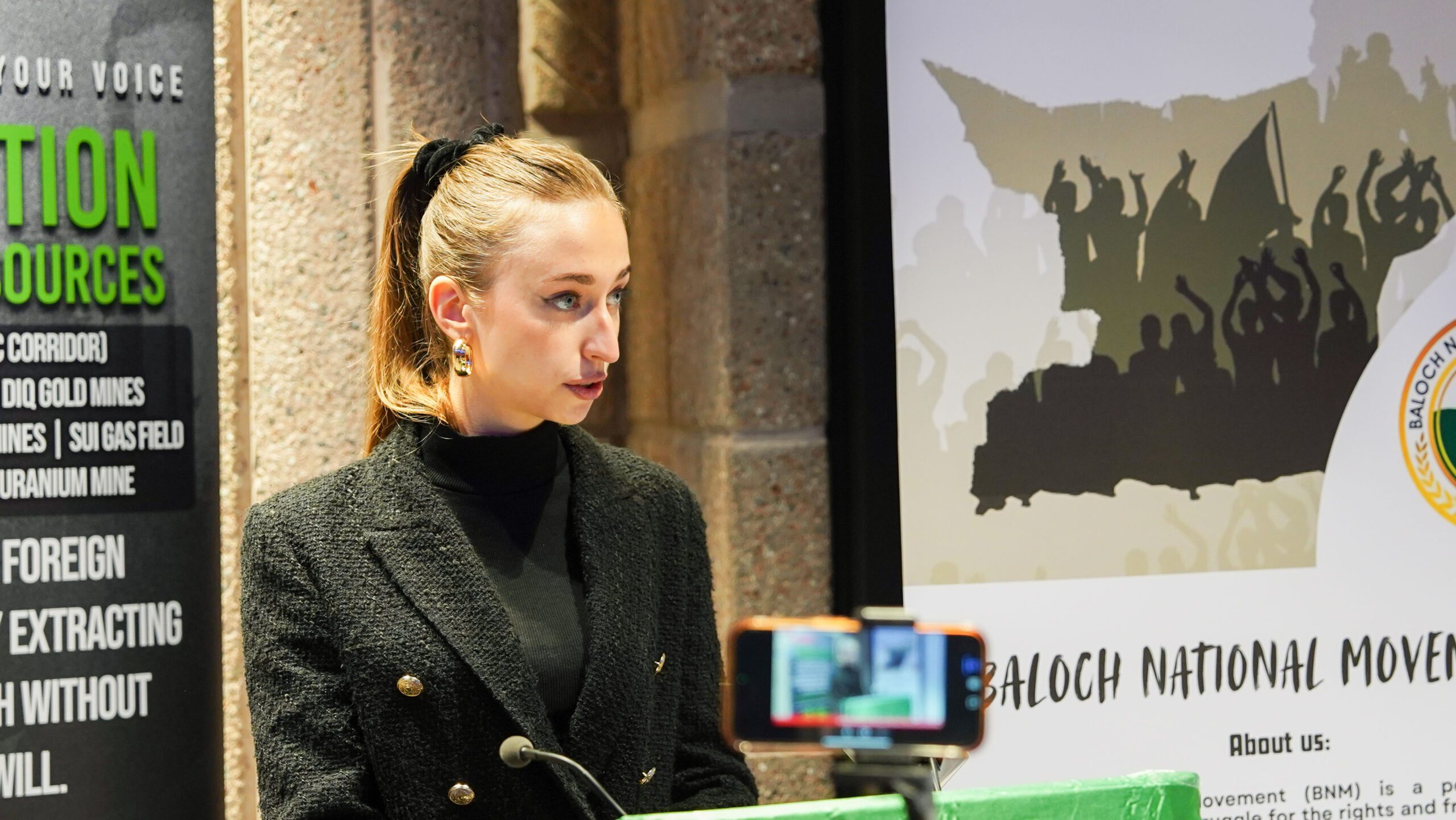On behalf of the Peaceful Asia Association, it is a privilege to stand before you today at this important conference organized by the Baloch National Movement (BNM). The purpose of this gathering is to shed light on the human rights crisis in Balochistan, a region rich in natural resources but subjected to decades of systemic oppression, forced disappearances, killings, and exploitation. One of the most shocking forms of oppression in Balochistan is the exploitation of its natural resources.
For over five decades, Pakistan has been extracting natural gas from Balochistan, particularly from the Sui gas fields, discovered in the 1950s. Despite Balochistan being the primary supplier of natural gas to the rest of Pakistan, the people of Balochistan remain deprived of this very resource. Sui, the town where the gas was discovered, stands as a stark example of this injustice. Most of the people in Sui still do not have access to natural gas. While cities like Lahore and Islamabad benefit from these supplies, locals in Sui and other areas where gas was discovered are denied access. This is not just an economic injustice but a violation of the basic rights of the Baloch people, whose resources are extracted without their consent or benefit.
This exploitation has fueled resentment and unrest for decades, reflecting colonial-style extraction policies that benefit the center at the expense of the periphery. In recent years, a new wave of human rights violations has emerged, disguised as development, particularly through the China-Pakistan Economic Corridor (CPEC). This massive infrastructure project, backed by billions of dollars in Chinese investment, aims to connect China to the Gwadar port in Balochistan.
While CPEC is presented as a game-changer for Pakistan’s economy, for the people of Balochistan, it has brought only repression and exploitation. The construction of the corridor has led to large-scale land grabs, the displacement of local communities, and increased militarization in the region. Under the guise of securing the project, Pakistan’s military forces have intensified operations in Balochistan, leading to a surge in enforced disappearances, killings, and the silencing of dissenting voices.
CPEC has also deepened the economic marginalization of the Baloch people. While infrastructure is being built to facilitate trade and profits for Pakistan and China, the people of Balochistan are denied jobs, compensation, and basic services, with Chinese laborers often imported for key roles. This so-called development has not improved the lives of ordinary Baloch people but has instead entrenched their exploitation and deepened their oppression.
Alongside economic exploitation, Balochistan continues to witness gross human rights violations. Thousands of Baloch activists, students, journalists, and political leaders have been forcibly disappeared by Pakistan’s security forces. These enforced disappearances and killings are not isolated incidents but part of a systematic campaign to suppress the Baloch people’s legitimate demands for autonomy and self-determination. The situation in Balochistan is not merely a regional issue; it is a global human rights crisis that demands international attention.
The international community has a responsibility to urge both Pakistan and China to respect the rights of the Baloch people. The United Nations, the European Union, and the international human rights community must launch independent investigations into the atrocities taking place in Balochistan. Global powers must support the Baloch people’s right to determine their own future, free from violence, exploitation, and repression.
The struggle of the Baloch people for their rights, land, and resources is not just a political struggle; it is a fundamental human rights issue. The ongoing exploitation of Balochistan’s resources and the brutal suppression of its people’s aspirations for freedom can no longer be ignored. It is our collective responsibility to amplify the voices of the Baloch people and to work toward justice, dignity, and self-determination for Balochistan.
In conclusion, the crisis in Balochistan is one that deserves urgent global attention. The economic and human rights abuses perpetrated in the name of development must be challenged. The Baloch people’s fight for their land, rights, and freedom must be supported by the international community, and their voices must be heard. The time to act is now.
Introduction : Anhelina is a representative of Peace for Asia, a Geneva-based non-profit NGO dedicated to researching and documenting human rights violations across Asia. She is also pursuing studies in International Relations and Computer Science in Geneva. Anhelina is committed to promoting human rights and fostering global peace through innovative solutions and collaborative efforts.



